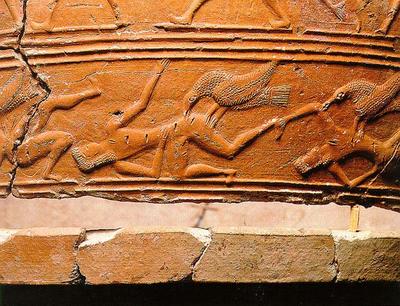
My main project is an exploration of long-term conflicts between neighboring cities in Ancient Greece. The nature of these conflicts is not well understood. Some scholars build their accounts of the Archaic period around these perpetual hostilities between pairs of cities; others altogether deny the significance of such conflicts. The enduring hostilities focused on relatively small pieces of border territory, and accounts of the confrontations refer, perplexingly, both to limitations of violence and to extreme destructiveness. Another remarkable characteristic of these conflicts is a richness of their mythological, cultic, ritual and poetic associations. My conjecture is that in the Archaic period, these conflicts were thoroughly ritualized. They consisted of regularly recurring battles that were normally non-lethal, and the perpetually dispued territories simultaneously constituted a common sacred space for the participants from the rival cities. The battles reenacted catastrophic hostilities between ancestral figures, who were imagined to fight to death at the dawn of history. The confrontations were highly aristocratic: results of several case studies indicate that in each case the participants belonged to the social class of hippeis; for these young nobles the battles served as rites of passage. The battles also created ties of friendship between the local aristocrats and their elite allies from other cities that took part in the fighting; and, most remarkably, they forged ties of friendship between the opposing sides.
Fascinatingly, after the system of the ritual battles disintegrated (in the second part of the sixth century BC), the myths about ancient enmities between neighboring cities were often adopted and transformed by new-fangled democratic regimes. Oligarchic factions also kept referring to them, adapting them to their own purposes (such as coups). Thus these myths became a contested territory in themselves. One feature that made them expedient for political maneuvers was their shimmering quality, shifting easily to substitute war for peace, enmity for friendship, non-lethal violence for lethal one, and vice versa. The exploration of these conflicts becomes an investigation of the mutable connection between rituals and myths, of the nature of language and variable representations of history.





